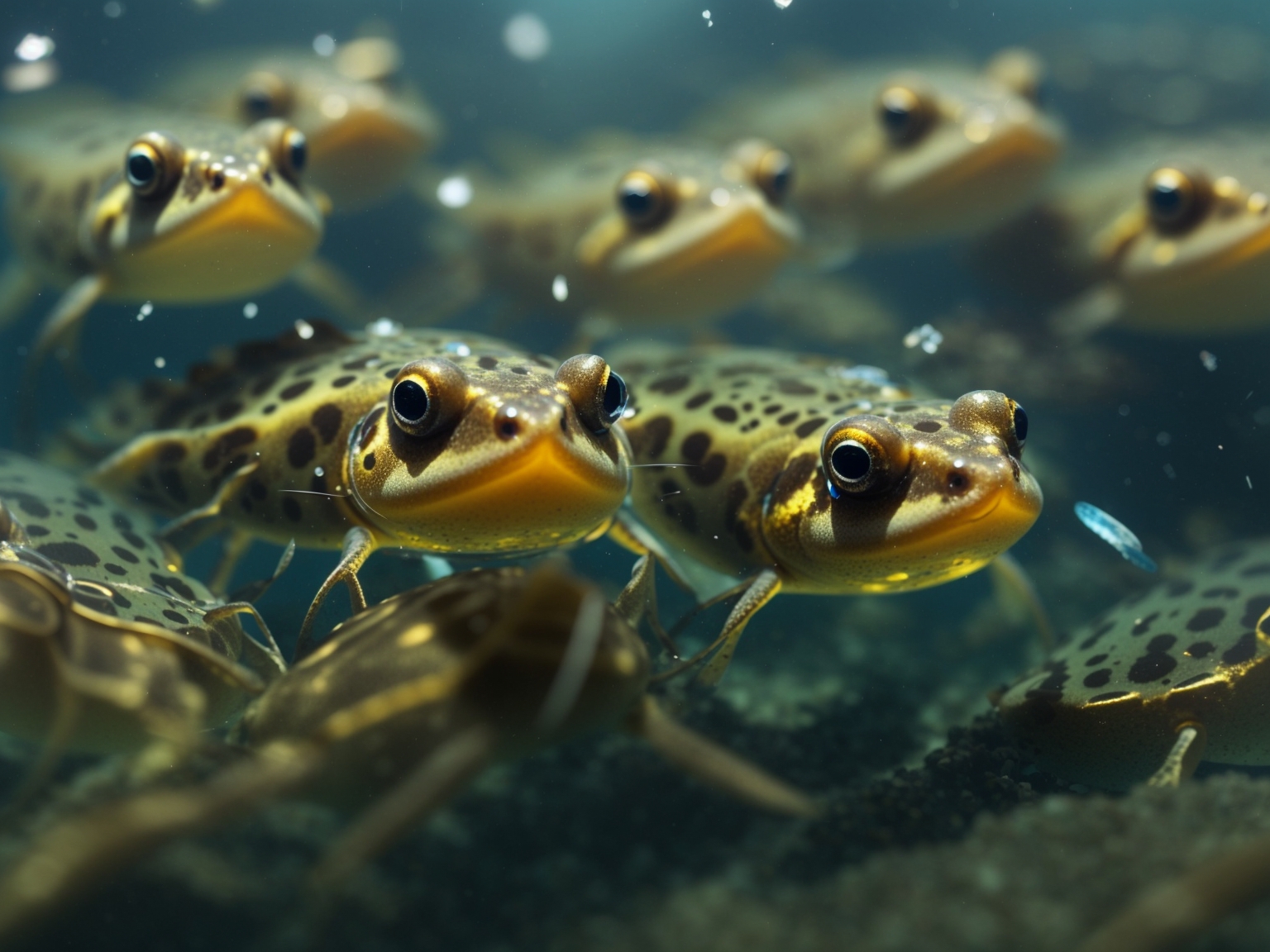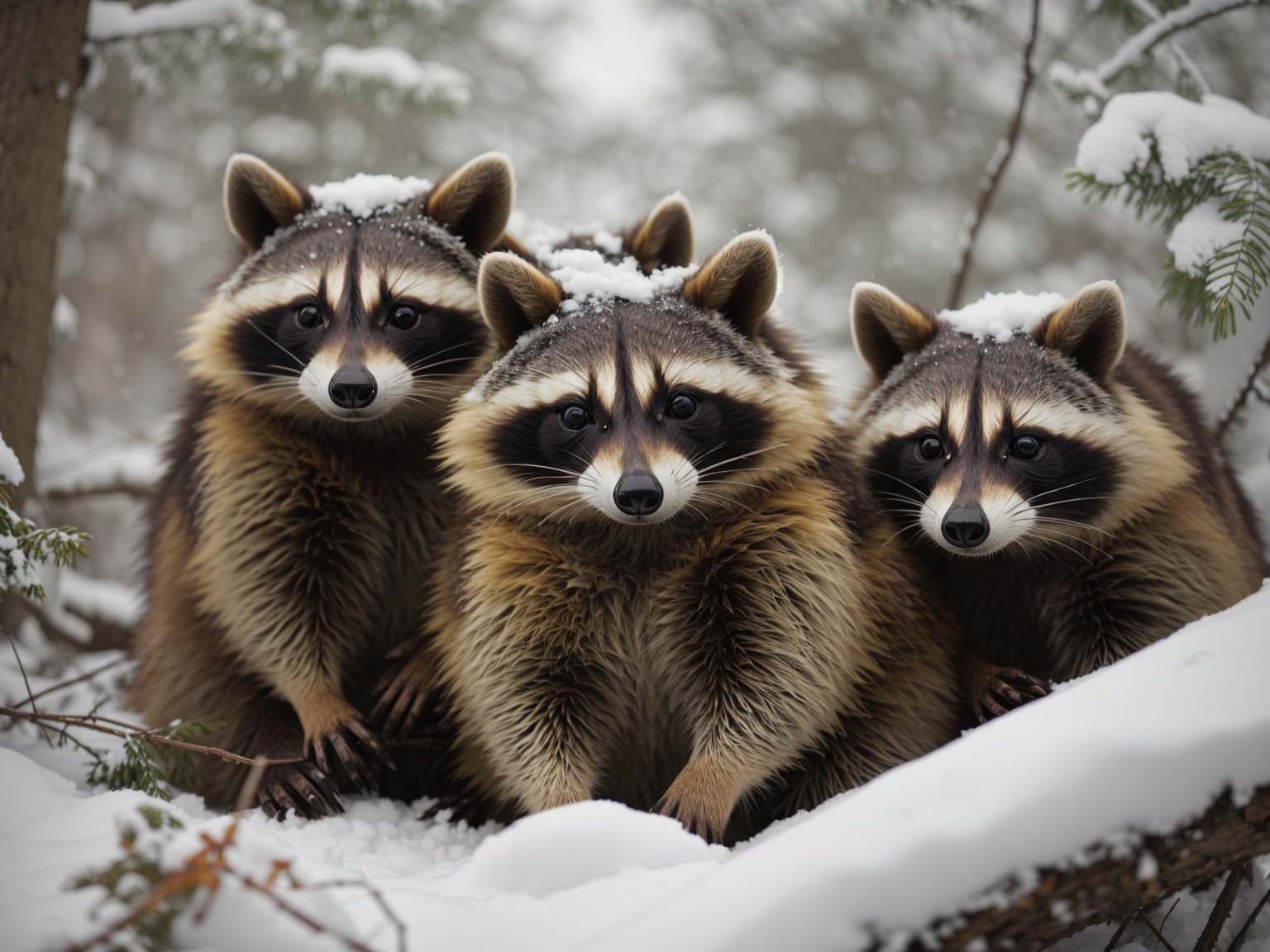Do Skunks Eat Meat? Uncovering Their Carnivorous Diet
Curious about the dietary habits of those black and white critters that are notorious for their pungent defense mechanism? Skunks are more than just their smell, and their eating habits might surprise you. In this article, you’ll discover if meat is on the menu for these nocturnal creatures.
You might think skunks are picky eaters, but they’re actually quite the opposite. We’ll dive into the diverse palate of skunks and explore how meat fits into their diet. Get ready to uncover the carnivorous side of skunks that often goes unnoticed.
Skunks: More Than Just a Smell
When you think about skunks, it’s the notorious odor that likely springs to mind first. But there’s much more to these creatures than their pungent defense mechanism, especially their diet. Skunks are omnivores, which means they eat both plants and meat. This dietary flexibility helps them to thrive in a variety of environments.
Interestingly, the meat component of a skunk’s diet is essential for their survival. They primarily hunt at night, taking advantage of their excellent night vision. During these dusk-till-dawn forays, skunks will eat:
- Insects
- Small rodents
- Lizards
- Amphibians
This protein intake is vital for their nutrition, particularly for the development and maintenance of their muscles and organs.
Not only do skunks have a taste for these small creatures, they also play a significant role in controlling pests. By feasting on agricultural pests such as grubs and beetles, skunks provide a natural benefit to the ecosystem and help maintain a healthier balance.
Your garden might also be a feeding ground for skunks looking for meaty morsels. If you notice skunks in your area, they might be in the midst of hunting smaller animals that can often be found in suburban and urban spaces.
It’s also worth noting that despite their proclivity for meat, skunks are adaptable and will shift their diet according to availability. During the colder months, when prey is scarce, they may rely more heavily on their ability to dig and unearth invertebrates or human garbage.
Understanding the diverse palette of skunks underscores the complexity of these often-misunderstood animals. They’re not only about their trademark spray—skunks are integral parts of the food chain, contributing to the health of our ecosystems by being both predator and prey.
Exploring Skunk’s Diet
When you think about what skunks eat, it may surprise you to learn that these little creatures have quite the varied palate. Skunks are natural omnivores and their diet is a balance of plants and meat, making them integral players in their ecosystems. In your backyard, a skunk might be feasting on pesky insects or nibbling on fallen fruit, showcasing their dietary adaptability.
At the heart of a skunk’s food intake are protein-rich items. This is where meat plays a pivotal role. Skunks actively hunt for their animal-based meals which primarily include:
- Insects like beetles and crickets
- Small rodents such as mice or voles
- Reptiles and amphibians when available
These sources of protein are crucial for their overall well-being, aiding in muscle and organ development. This is especially important for young skunks who need the nutrition for growth.
Skunks aren’t picky eaters and their flexibility in diet extends to scavenging. During the winter when insects are less abundant, skunks shift their food search underground, unearthing larvae and grubs. They might also rely on their keen sense of smell to locate carrion, which provides an important food source when other options are scarce.
Understanding the complexity of a skunk’s diet reveals their critical role in pest management. They help control insect and rodent populations, which can be beneficial to you as a homeowner. Recognizing the value skunks bring might make you think twice before considering them a simple nuisance.
As the seasons change, so does their diet, demonstrating an impressive ability to adjust based on availability. Whether through hunting prowess or opportunistic foraging, skunks maintain a balanced diet that underscores their resilience and importance to the health of their habitats.
The Surprising Palate of Skunks
When you dig into the dietary habits of skunks, you’ll find their eating preferences are as diverse as their habitats. Far from just being simple foragers, skunks have a surprisingly sophisticated palate that goes well beyond the average insect or grub. In the warm months, their diet expands to include an array of meats.
Skunks aren’t picky eaters. In fact, your typical backyard visitor is opportunistic when it comes to food. They feast on earthworms, larvae, and beetles, which make up a substantial part of their diet. But when opportunity knocks in the form of small mammals like mice and voles, skunks answer with enthusiasm. These meaty meals are not just passing fancy—they provide essential nutrition and help skunks maintain their energy levels.
It’s this varied menu that often leads skunks to your property. If you live in an area with a moderate skunk population, it’s likely because your space offers plenty of insects and small rodents—ideal prey for these omnivores.
Understanding a skunk’s love for meat also means recognizing the role they play in your local ecosystem. As skunks forage and hunt, they keep the population of smaller pests in check. Your garden, your yard, and even your home benefit from skunks rooting out these creatures that could otherwise cause damage.
Here’s what skunks commonly snack on:
- Earthworms
- Grubs
- Beetles
- Small rodents like mice and voles
It’s in your best interest to understand what attracts skunks to your surroundings. By managing your compost, securing your garbage bins, and monitoring rodent populations, you can live in harmony with these critters. Remember, a skunk’s search for sustenance brings balance to your local ecosystem, and appreciating their dietary habits is the first step towards coexisting peacefully.
Unveiling the Carnivorous Side
Skunks have a reputation for being mischievous night wanderers, but what they’re really on the hunt for is their next meaty meal. Your garden might be a buffet not for your veggies, but for the protein-rich delicacies skunks crave. They are particularly fond of earthworms, grubs, and insects, which help control pests in your yard.
During certain seasons, skunks might even expand their carnivorous menu. Small mammals, such as mice and voles, become prime targets as skunks utilize their acute sense of smell to locate these critters. The consumption of these small mammals not only fills the skunk’s stomach but also keeps the rodent population in check.
If you’re near wooded areas or fields, skunks may also prey on reptiles and amphibians. These creatures are packed with nutrients necessary for skunk survival. A skunk’s diet shifts with the seasons, so when insects are less abundant, these meaty alternatives become more appealing.
Understanding the skunk’s carnivorous habits is essential for appreciating the role these creatures play in ecosystem balance. By naturally reducing unwanted pests, skunks indirectly aid gardeners and homeowners. Therefore, despite their infamous odor, having a skunk around could be more beneficial than you might think.
To keep skunks around without inviting them into conflict with your pets or trash, consider secure composting solutions and robust food waste management practices that deter skunks from scavenging too close to your home. Remember, a friendly distance respects both your space and theirs, allowing the skunks to focus on the meaty meals they prefer in the wild.
Conclusion
You’ve now uncovered the carnivorous side of skunks and their impact on the ecosystem. They’re not just curious creatures with a notorious defense mechanism; they’re also integral in controlling pests. Remember, managing your outdoor space effectively can help live harmoniously with these omnivorous neighbors. Embrace their presence as natural pest control and take proactive steps to keep your environment clean and skunk-friendly. By doing so, you’ll appreciate the balance skunks bring to your backyard without the worry of unwanted encounters.
- Why Is Microgreens Farming Popular for Small Spaces? Top Benefits Explained - November 9, 2025
- How Do I Build a Patio Cover? Step-by-Step Guide to Create Your Perfect Outdoor Space - November 9, 2025
- Where Can I List My Backyard for Dog Park Rentals? Top Platforms and Tips for Success - November 8, 2025




